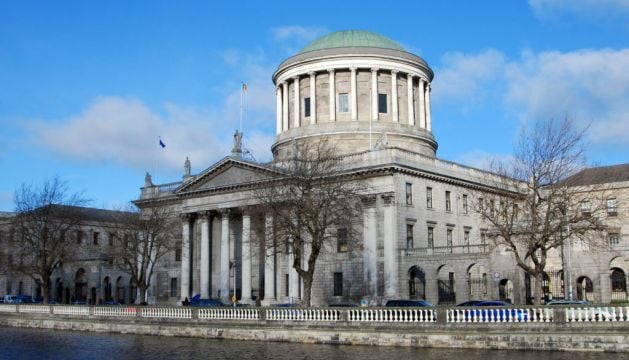A man who was jailed for seven years for rape has had his conviction quashed on Tuesday after the Court of Appeal ruled that interventions made by the judge during the trial "were likely to have rendered the verdict unsafe".
The man had pleaded not guilty to one count of rape against a 17-year-old girl at an address in Midleton, Co Cork, in August 2017.
A jury, however, convicted him of the offence in September 2020 and he was sentenced to 10 years’ imprisonment with the final three suspended by Mr Justice Alexander Owens at the Central Criminal Court in Cork.
The man later appealed his conviction on the grounds that Mr Justice Owens had erred by "frequently and excessively intervening during the examination and cross-examination of the appellant, and thereby disrupted and prejudiced the appellant’s evidence to such an extent so as to render the trial unfair".
In a judgement delivered by Ms Justice Isobel Kennedy, it was noted that while "excessive interventions by a trial judge" were to be "depreciated", there were occasions when such interventions were "necessary in order to clarify issues, or to clarify questions asked".
In this case, however, the real issue was "whether the interventions of the judge in the examination and cross-examination went beyond what may be considered permissible", the judge stated.
Although there was "no doubt" Mr Justice Owens was "acting with the very best of motives", the appeal court was nonetheless "concerned that the nature of the interventions… were likely to render the trial unfair", she continued.
Reluctance
"We are most reluctant to interfere with the discretion of the trial judge who is best placed to assess the evidence as it folds at trial, but we believe that the judge entered the arena to too great a degree," observed Ms Justice Kennedy, who was sitting with Mr Justice George Birmingham, presiding, and Mr Justice Patrick McCarthy as she quashed the verdict.
After the judgment was delivered, James Dwyer SC, for the Director of Public Prosecutions (DPP), informed the court that the State would like time to "digest the judgement" before deciding whether there should be a retrial.
The man has been remanded in custody with consent to bail on condition that he does not contact prosecution witnesses on his release and signs on at his local Garda station.
The case has been adjourned until Thursday.
During the appeal hearing on March 10th, Siobhan Lankford SC, for the appellant, submitted that the "excessive" number of times her client was asked a direct question by the judge meant that, in effect, there had been "two prosecutors" at the trial.
"I was asking questions [of the appellant] and the trial judge was asking questions. That was the way trial flowed," counsel explained.
At one stage she said she was forced to raise an objection, on the grounds that the judge appeared to "putting words into my client’s mouth" with one of his questions.
"When you are taking your client through their evidence, it would probably be better if you were allowed to do so without interruption," Ms Lankford added.
Search history
The man had also appealed his conviction on the grounds that Mr Justice Owens erred "in law and in fact in refusing the appellant’s application to rule Google searches made by the applicant on his telephone as inadmissible in evidence".
Ms Lankford submitted that Google searches made by her client after he was told a complaint of rape had been made to gardaí against him included 'rape kit accuracy', 'is drunk sex considered rape', and 'girl rape drunk'.
However, she said the searches were attempts by the defendant to seek legal advice and had "limited relevance".
"The nature of the words used is such as to possibly raise in the mind of the jury a prejudice against my client," she said, adding that allowing the search terms to go before the jury had only served to paint her client "in a bad light".
Ray Boland SC, for the DPP, said juries in rape trials had to undergo "some form of mind reading".
"Did the complainant consent? If the complainant did not consent, was the accused aware of the lack of consent. Did the accused act recklessly regarding the issue of consent?" he asked.
While counsel acknowledged the Google searches were of limited relevance, he said they provided an indication of the appellant’s "state of mind" without prejudicing the trial.
Regarding the issue of judicial interventions, Mr Boland remarked that judges differed in style. "Some sit like a sphinx and don’t interrupt at all," he said.
However, he acknowledged that the number of interruptions in the appellant’s trial had been "greater than you would normally come across".
Mr Boland also pointed out to the court that juries were "robust" and asked whether they were to be considered "infirm in the face of judicial intervention".

He said the trial was not "a case put off the rails by judicial intervention" and the "result should not be overturned".
If there had been an issue with the judge’s interventions, the judge should have been informed at the time, he added.
If you have been affected by any of the issues raised in this article, you can call the national 24-hour Rape Crisis Helpline at 1800-77 8888, access text service and webchat options at drcc.ie/services/helpline/, or visit Rape Crisis Help.
In the case of an emergency, always dial 999/112.







